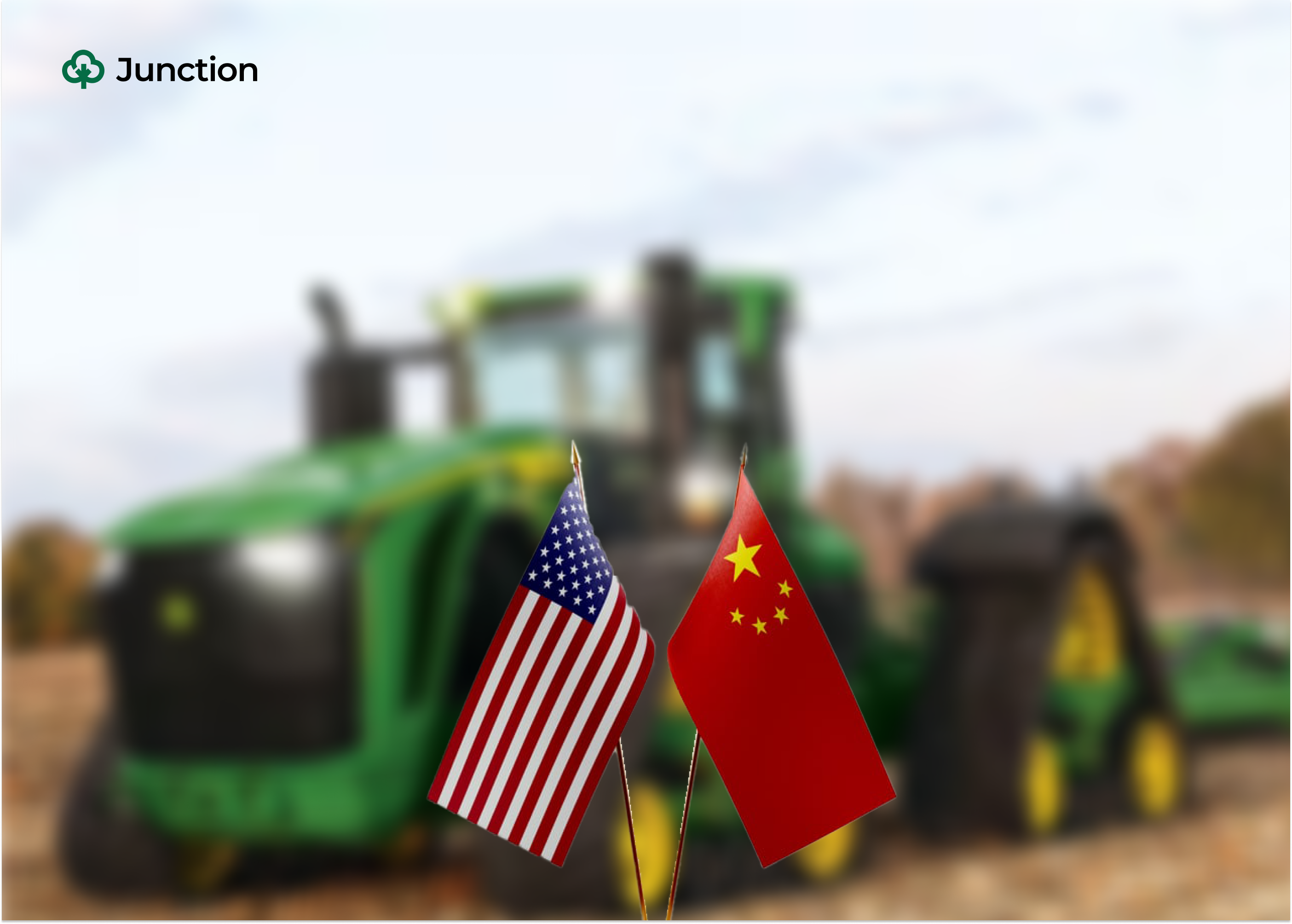News in brief:
– The renewed US-China trade war has triggered retaliatory tariffs, including a 10% levy on US agricultural machinery, raising costs and disrupting supply chains worldwide.
– Nigerian farmers and agribusinesses may face higher input costs but could also find opportunities in surplus machinery and alternative markets.
The renewed US-China trade war is set to have significant consequences for global trade, particularly in the agricultural sector. China has announced retaliatory tariffs on US imports, including a 10% levy on agricultural machinery, in response to President Donald Trump’s new 10% tariffs on all Chinese imports. This escalation threatens to disrupt supply chains, increase costs, and create uncertainty for agribusiness owners worldwide.
Expected retaliatory tariffs from Canada and Mexico are on hold as the two countries reached agreements with the White House, leading to Trump pausing initially announced measures for 30 days.
Impact on agricultural machinery imports
China is a major importer of agricultural machinery, ranking as the 23rd largest importer globally in 2022. The US supplied $21.9 million worth of machinery to China, making it the country’s top supplier in this category.
With new tariffs in place, these costs will likely rise, making it more expensive for Chinese farmers and agribusinesses to acquire essential equipment. This could lead to reduced demand for US-made machinery and open opportunities for alternative suppliers from the Netherlands, Finland, Israel, and Germany, which are also key exporters to China.
For Nigerian farmers and agribusiness owners, the trade war presents both challenges and opportunities. If US exports to China decline, there may be surplus machinery available at discounted rates in other markets, potentially benefiting buyers outside the direct conflict. Additionally, Nigerian manufacturers may find openings to produce and export lower-cost alternatives to markets affected by US-China tensions.
Broader effects on global agriculture
Beyond machinery, the trade war could disrupt global agricultural markets. China’s new tariffs on US crude oil and liquefied natural gas (LNG) will likely drive up energy costs, affecting the price of fuel and fertilisers. This could increase production costs for farmers worldwide, including those in Nigeria.
However, these tensions also highlight the need for Nigerian agribusinesses to diversify supply chains and seek alternative trading partners. Strengthening local manufacturing of farm equipment and investing in sustainable energy sources could help mitigate risks associated with global trade uncertainties.
As the situation unfolds, Nigerian farmers should monitor these developments closely, explore new opportunities, and adapt to shifts in the global agricultural landscape.



